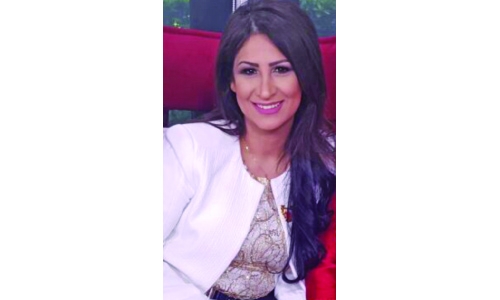I join Zainab
I am very touched by the story of Zainab Al Laith, not just because she donated one of her kidneys to her sister but because she has stated in her will that she would like all her organs to be donated to save other people’s lives, after she passes away.
I cannot imagine that someone has finally announced it in Bahrain and I have never heard of this before. She may be the first Bahraini to make such a request in her will.
She is truly a hero and deserves utmost appreciation and respect for breaking the norm and asking to donate her organs to anyone whose life can either be changed or saved.
For years we have been talking about donating body organs and transplantation of organs from one human being to another which has always been written about, talked about and debated about intensely.
In Bahrain, there have been many cases where a member of the family has donated an organ, especially a kidney to another family member but Zainab I believe is the first to request that her organs be donated to others who need them, regardless of whether they are members of her family or not.
What is happening today in the world of organ donation and transplantation?
Over the past few decades transplantation of organs has become the accepted treatment for a number of conditions. A patient with kidney failure has the alternative of dialysis until an organ becomes available, but the only hope for a patient with liver or heart failure is to have an immediate transplant.
A person is only considered dead when all the organs stop functioning while medically, once a person is brain dead, everything else only artificially functions with help. This is where the controversy starts and different religious views intervene.
How do we help critically ill patients whose numbers seems to be constantly on the increase in the world?
Organ donation is a very gracious act and affirms our faith in humanity and willingness to help others. However, in many countries organ donation process is marred due to the stigma attached to kidney donation and laws and regulations prohibit any commercial dealing in organs. Some people sell their parts due to poverty and in many cases, after the deal is agreed upon, the person who sold his organ isn’t adequately compensated.
Therefore, donation remains to be the only option that cannot be stigmatized.
In countries where a person is considered dead once the brain stops functioning, many lives were saved. In those countries organs have been donated and transplanted from patients who are brain dead, cadaver or deceased organ donation.
In the year 2011, Bahrain and Saudi Arabia agreed to promote organ transplants. A team from Salmaniya Medical Complex Yusuf Khalil Almoayyed Nephrology and Kidney Transplant Centre received a Saudi Organ Transplant Centre delegation and discussed activating a GCC organ donation program, particularly clinically brain dead patients.
The two sides discussed activating organ transplant cooperation between both centres for the sake of GCC patients suffering from kidney failure.
Under the scheme, all Bahrain public and public hospitals would be sent a circular urging them to quickly report cases of clinically brain dead patients and psychotically prepare relatives to ensure early organ donation. The Saudi Organ Transplant Centre would present cash rewards to the relatives of donators and clinically brain dead patients in recognition of their noble humanitarian gestures.
What’s needs to be addressed and looked in-depth into now is what kind of co-operation has since then taken place between the two parties.
This is one of the most noble missions two health entities undertook and worth investigating.
But what remains to be more significant than these efforts is public awareness. We may all go through the most unfortunate experiences in our lives but what we need to do is always remember our humanity and how with one word, we can change the life of a total stranger. I would place that in my will. My organs can go to anyone who needs it, the moment the straight line appears on that machine. That straight line could mean a new life for someone else.
Related Posts

